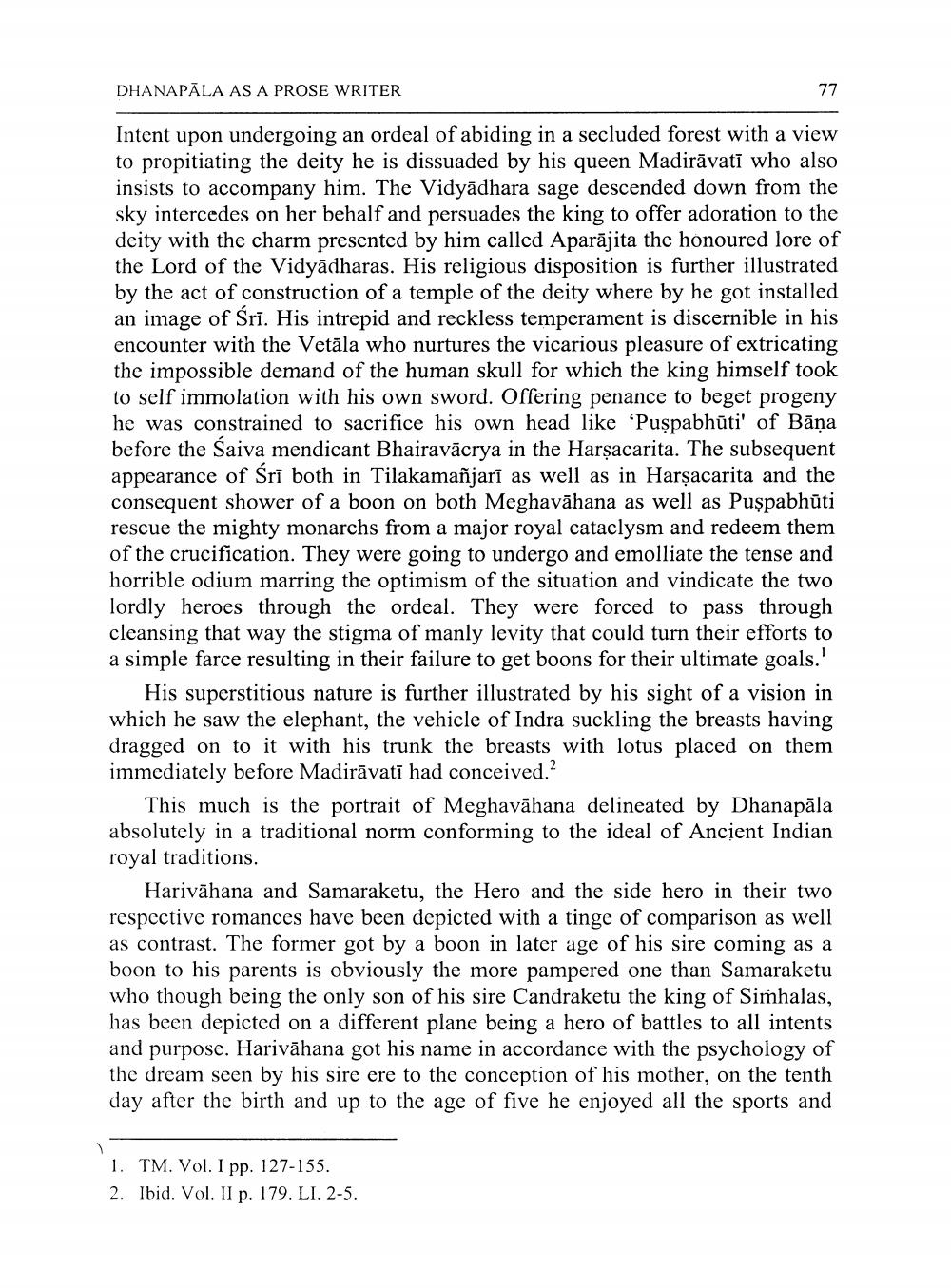________________
DHANAPĀLA AS A PROSE WRITER
77
Intent upon undergoing an ordeal of abiding in a secluded forest with a view to propitiating the deity he is dissuaded by his queen Madirāvatī who also insists to accompany him. The Vidyādhara sage descended down from the sky intercedes on her behalf and persuades the king to offer adoration to the deity with the charm presented by him called Aparājita the honoured lore of the Lord of the Vidyādharas. His religious disposition is further illustrated by the act of construction of a temple of the deity where by he got installed an image of Śrī. His intrepid and reckless temperament is discernible in his encounter with the Vetāla who nurtures the vicarious pleasure of extricating the impossible demand of the human skull for which the king himself took to self immolation with his own sword. Offering penance to beget progeny he was constrained to sacrifice his own head like “Puşpabhūti' of Bāņa before the Saiva mendicant Bhairavācrya in the Harsacarita. The subsequent appearance of Śrī both in Tilakamañjarī as well as in Harsacarita and the consequent shower of a boon on both Meghavāhana as well as Puspabhūti rescue the mighty monarchs from a major royal cataclysm and redeem them of the crucification. They were going to undergo and emolliate the tense and horrible odium marring the optimism of the situation and vindicate the two lordly heroes through the ordeal. They were forced to pass through cleansing that way the stigma of manly levity that could turn their efforts to a simple farce resulting in their failure to get boons for their ultimate goals.'
His superstitious nature is further illustrated by his sight of a vision in which he saw the elephant, the vehicle of Indra suckling the breasts having dragged on to it with his trunk the breasts with lotus placed on them immediately before Madirāvatī had conceived.?
This much is the portrait of Meghavāhana delineated by Dhanapāla absolutely in a traditional norm conforming to the ideal of Ancient Indian royal traditions.
Harivāhana and Samaraketu, the Hero and the side hero in their two respective romances have been depicted with a tinge of comparison as well as contrast. The former got by a boon in later age of his sire coming as a boon to his parents is obviously the more pampered one than Samaraketu who though being the only son of his sire Candraketu the king of Simhalas, has been depicted on a different plane being a hero of battles to all intents and purpose. Harivāhana got his name in accordance with the psychology of the dream seen by his sire ere to the conception of his mother, on the tenth day after the birth and up to the age of five he enjoyed all the sports and
1. TM. Vol. I pp. 127-155. 2. Ibid. Vol. II p. 179. LI. 2-5.




